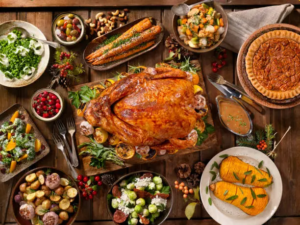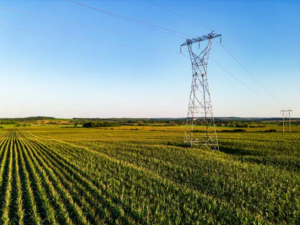Written by: Aditya Batra
Edited by: Jana Daniels
Designed by: Andria Sahar
Published by: Andrew Jackson
Canadian Food Freedom Day: A Celebration of Agriculture and Food Accessibility. Every year, Canadians spend a portion of their income on food, but how many took a moment to consider the effort, the labor, and the systems that go into providing each meal? January 19th this year reminds us of that essential connection. Canadian Food Freedom Day should remind people of the hard work behind the food they eat. As this date approaches, it is impossible not to reflect on the worth of food, and how crucial it is for everyone worldwide to have access to nutritious meals. Canadian Food Freedom Day marks the day the average Canadian has earned enough money to cover a year’s worth of food. Based on the percentage of income Canadians spend on food each year, this date reminds Canadians of the hard work from farm to table. Food Freedom Day this year is on January 19th. For many, it’s a real eye-opener regarding the amount of money spent for food by the farming community to ensure that the supply of food remains plentiful. It is not only a celebration of this particular moment when Canadians have “earned” their food, rather it should raise awareness of the broader food system and the role and importance of sustainable local agriculture.

Ontario’s agricultural sector
Ontario is home to some of Canada’s most fertile agricultural land, with a variety of crops and products grown throughout the region. Farmers here produce everything from grains, vegetables, and fruits to dairy, meat, and wine. But besides those plain economic reasons for farming, the agricultural production of the region aids in food security for Ontario. However, food costs continue to increase because of inflation, climate change, and supply chain disruptions. Hence, Food Freedom Day raises awareness about supporting Canadian farmers who work hard day and night to see that food is not only available but accessible to all. While Food Freedom Day is meant to be a day to celebrate Canadian food production, it underlines a very different reality about food insecurity in Ontario.

Food insecurity in Ontario
While we celebrate the moment when the average Canadian has earned enough to cover their food for the year, it’s also an opportunity to recognize that not everyone has that privilege. According to the latest reports from organizations like Feed Ontario, nearly 1.1 million Ontarians face this insecurity each year. This is especially concerning in urban centers like Toronto, where the high cost of living makes it difficult for many families to access healthy, affordable food. For many families, who are already struggling to make ends meet in Southern Ontario’s cities and towns, the cost of groceries is increasingly beyond their reach. Food banks, community meal programs, and other initiatives that provide access to affordable food are critical in addressing these disparities. Canadian Food Freedom Day asks individuals and communities to reflect on the importance of advocating for local food systems and consider how we can contribute to solutions for food insecurity. If you live in Ontario, several ways to mark Canadian Food Freedom Day and build a more sustainable and inclusive food system are: Support Your Local Farmer: Buying from farmers’ markets or grocery stores that sell locally sourced foods will support the farmer who labors to grow our food. The CFA wants individuals to be well-informed about how their foods are produced and to support those who grow them. Volunteer at a local food bank, or community kitchen and donate to organizations that address food insecurity. Food programs that provide fresh, locally grown produce to those in need sustain many communities in Ontario. Canadian Food Freedom Day is a great opportunity to educate others about the challenges faced by farmers, the costs of food production, and the need to address food insecurity in the province. Advocate for a policy that supports local farmers and makes food affordable for all. Examples of such policies that will be advocated include fair farm-gate prices, investment in the development of agriculture, and support for initiatives improving food access in disadvantaged communities.

Factors contributing to rising food prices
The food costs and farmers’ contributions as the CFA(Chartered Financial Analyst) says, “The concept of Food Freedom Day isn’t just to celebrate when we’ve “paid” for our food for the year; it’s to reflect on how much we spend for food and just how the cost of food impacts everyday life.”. The CFA says the date, which increases each year according to the average income and food expenses of Canadians, represents the connection between the consumer and farming community. Canadians have been experiencing a rise in food prices lately, which are blamed on numerous contributing factors, including global supply chain issues, greater input costs for farmers, and unpredictable weather resulting from climate change. The CFA further points out that while food prices are constantly on the increase, the farm gate prices, which the farmers receive for their products, usually remain low. This imbalance underlines the need for greater awareness for the farmers. Food Freedom Day invites a closer examination of how what we pay in the store for food and the farmer’s take-home pay do or do not align. Though the farmers of Canada work very hard, the economic returns from farming for many farmers will leave their operations wobbling in unsustainability.

The CFA and Farm Gate Prices
Canadian Food Freedom Day celebrates the food on our plates but, at the same time, the continuing struggles within the food system. Southern Ontario is so involved with farming, local culture, and the economy that Food Freedom Day especially calls us to look at farmers’ key roles in placing enough on our plates. But beyond the celebration, it calls to action: ensuring food security, empowering local agriculture, and advocating for policies that ensure healthy, locally grown food is available and accessible to everyone. As food costs rise, climate change sets in, and the demand for sustainable food systems increases, supporting Canadian farmers and investing in our agricultural future is more important now than ever.

Supporting Local Farmers and Policies
As we approach Canadian Food Freedom Day in 2025, we should all take a moment to reflect on the work that puts food on our tables. Each of us can contribute to a better food system by supporting local food systems, advocating for fair food policies, and raising awareness about food insecurity.
Resources:

